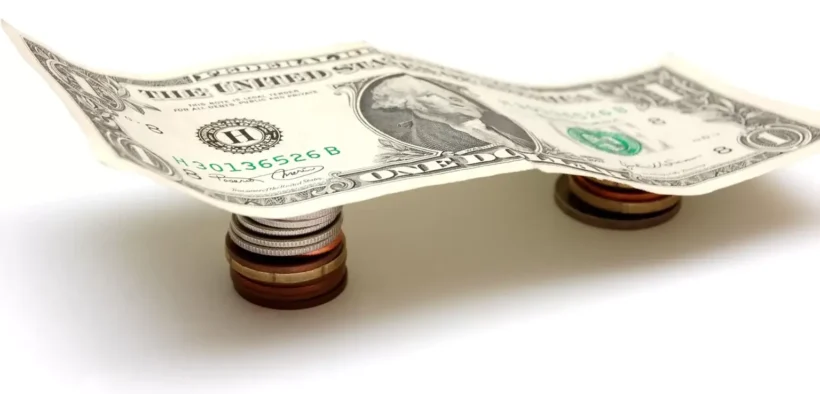7 Ways to Invest in a Weaker Dollar in 2025
Share

The U.S. dollar has faced significant challenges in 2025, with its value dropping nearly 10% year-to-date. A combination of unpredictable U.S. policy decisions, geopolitical trade tensions, and a softening macroeconomic environment has all contributed to this downturn.
As the Federal Reserve considers interest rate cuts, with an 80% chance of two or more reductions, investors are being presented with opportunities to navigate and benefit from a weaker dollar. Here’s a look at how to leverage this shift in the global financial landscape:
U.S. Companies with International Sales
A weaker dollar often benefits U.S. companies generating substantial international revenue. When the dollar weakens, the revenue earned overseas becomes more valuable when converted back into U.S. dollars. This can significantly boost profits for global businesses.
Alan Locke, president of Locke Investment Management, recommends investing in large U.S. companies with a significant portion of their sales abroad. Companies like Qualcomm Inc. (QCOM), Schlumberger Ltd. (SLB), and Aflac Inc. (AFL) are prime examples of U.S. companies that can see their profits increase as the dollar declines.
International Stocks
Another strategy to capitalise on a weaker dollar is to invest in international stocks, especially from developed markets like Europe, Japan, and Korea. These markets are less vulnerable to U.S. economic fluctuations, offering stability and diversification.
For those seeking broad exposure, the Vanguard FTSE Developed Markets ETF (VEA) is a solid choice. With holdings in companies like Nestlé, ASML, and SAP, this fund provides diversified access to stable international markets. Locke suggests increasing foreign equity exposure by 5% to 10%, especially if trade tensions ease and the dollar remains weak.
Emerging Markets
Emerging markets, such as China, India, and Brazil, often experience substantial growth despite the dollar’s weakness. For risk-tolerant investors, these markets can provide high returns. The Vanguard FTSE Emerging Markets ETF (VWO) is a popular, low-cost option for tapping into this growth.
Commodities
A weaker dollar usually leads to higher commodity prices since most commodities are priced in U.S. dollars. As the dollar falls, it takes more dollars to purchase the same amount of commodities, which drives their prices higher.
Oil, in particular, tends to move inversely to the U.S. Dollar Index. Investors can capitalize on this by purchasing funds like the Invesco Optimum Yield Diversified Commodity Strategy No K-1 ETF (PDBC) or the United States Oil Fund (USO), which track commodity prices.
Gold
Gold is traditionally seen as a hedge against inflation and currency devaluation. As the dollar weakens, gold prices often rise as investors turn to the precious metal as a store of value. Peter Reagan, financial market strategist at Birch Gold Group, advises investing in gold to safeguard savings during periods of currency volatility.
Investors can gain exposure to gold through ETFs like SPDR Gold Shares (GLD) or the more volatile VanEck Gold Miners ETF (GDX), which offer easy access to gold markets.
Cryptocurrencies
For those willing to take on higher risk, cryptocurrencies such as Bitcoin (BTC) and Ethereum (ETH) can act as a hedge against a weak dollar. Many investors view Bitcoin as a form of “digital gold,” with its decentralized nature offering protection during periods of currency devaluation.
Nic Puckrin, founder of Coin Bureau, highlights Bitcoin’s appeal in a weak dollar environment, noting that it has been a strong performer in recent years. However, its extreme volatility means it’s best suited for investors with a higher risk tolerance.
International Currency ETFs
One of the simplest ways to profit from a weaker dollar is to invest directly in foreign currencies. International Currency ETFs, like the Invesco CurrencyShares Euro Currency (FXE) and the Invesco CurrencyShares Japanese Yen (FXY), allow investors to gain exposure to foreign exchange markets without the complexities of direct currency trading.

















